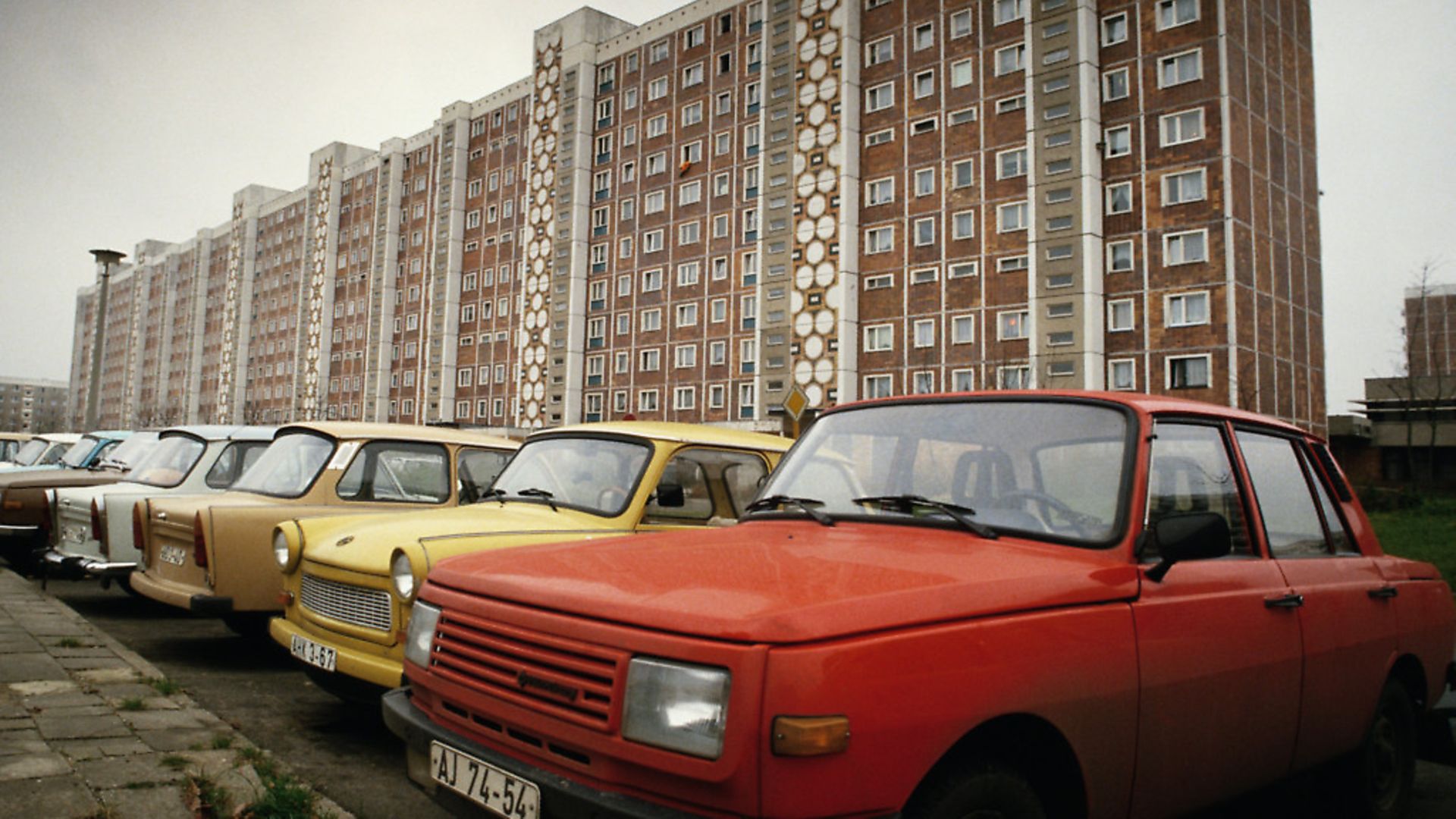
What a trip to East Germany in a Trabant taught WILL SELF about fate
On September 7, 2016, I parked our hired Trabant car in the car park of the Hotel Kaiserhof, in Eisenach, Thuringia, and clambered out, together with my companions, Michael Shamash and Laurence Grissell. We were on a bizarre road trip: driving one of these peculiar plastic-bodied cars all the way from London to Zwickau, in Saxony, where they were originally manufactured during the communist era. The trip was my idea: My friend Michael is subject to ostalgie: Nostalgia for the vanished East German (ostdeutsch) culture, in all its enforced egalitarianism – and he’d expressed a desire to visit Zwickau. Laurence, a brilliant radio producer, had come along to record a series of programmes based on our odd odyssey.
Odd..? No, really utterly bizarre. There was the strangeness of Michael’s ostalgie – a longing for a society he’d never known, and which he knew, objectively, to have been horribly oppressive – and the strangeness of the three of us, seemingly celebrating a terrible political divisiveness at the very moment in history when Europe was starting, once more, to put up its internal barriers. And then there was the car – I realised it was an utter clunker the second I saw it in the garage next to New Broadcasting House in central London. How the relevant BBC wonk had signed off on this one is beyond me – for one, it had no wing mirrors! This made the miserably underpowered vehicle seem yet more like a reification (good Marxist term, that) of our own destinies: There was no looking back – and no stopping either, for the brakes were so inefficient, that when travelling at the Trabi’s top speed – a magisterial 60kph – it would take, I calculated, approximately 500 metres to make an emergency stop, while if we hit anything at all when doing over 40kph, my suspicion was the car would entirely disintegrate.
I realised all of this as I wrestled the flimsy yet unwieldy vehicle through the London traffic – but some crazed portion of my psyche allowed me to repress the imminence of my own death. (Which is fair enough, since that’s what most of us do, most of the time.) But three days later, in Eisenach, I had an epiphany: I wanted to survive this journey forward into the dead past. Leaving Michael and Laurence to get us a table in the hotel restaurant, I walked up the wooded hill in the nearby Stadtpark. It was dusk, but to the southwest I could see the nearly 500m-high eminence on which sits the famous Wartburg Castle – Mad King Ludwig’s inspiration for his own Medievalist fantasias, and the gaff where Martin Luther plotted up when he was translating the Bible into German.
Not that those were the associations uppermost in my mind – rather, I thought of the old tankie I’d shared a squat with in the early 1980s: So enamoured was this avant garde cineaste with the then still-extant DDR that he bought one of the vanishingly small number of Wartburg cars which were made available to buyers in the West. The Wartburg – which was manufactured in Eisenach, and took its name from the castle – was an upmarket version of the Trabant: my friend had the estate version of this woefully underpowered, 900cc car – called, suitably enough ‘the Tourist’. Unlike the Trabi, Wartburgs were at least made from metal… of some sort. At any rate, my friend’s was virulent with rust as well as its engine being hopelessly unreliable. I well remember the frosty morning, when, enraged he ripped off the car’s radio aerial and used it, Basil-Fawlty-like, to whip the recalcitrant vehicle.
I, of course, shouted Comrade Stalin’s epigram out from one of the squat’s shattered windows: “Quantity has a quality all its own.” After all, believing you can whip into life a duff car manufactured in a duff regime, seems analogous to Marxist ideology itself, which also figures human history as a bizarre collective ‘hero’s journey’, progressed by a sort of mystical suspension of disbelief: The cut-and-shut car of capitalist society will nonetheless convey us towards the communist utopia. Anyway, up on the Hügel, looking towards the yet-higher one, it impinged on me that the second I’d seen the Trabant, I had indeed fallen victim to a form of false consciousness: Identifying my destiny with completing the radio series, rather than with the coming revolution.
It was a terrible contradiction to have to embrace: I returned immediately to the hotel, and over the flattest schnitzel I’ve ever eaten, told my companions we’d been metres from a fatal impact the whole way from London, and needed to think hard before we got back in that death trap of a car. Needless to say, the following morning we were back in it, and puttering further east. Perhaps the Marxists are right, and the future is historically determined – which would render ridiculous nostalgia for Great Britain, quite as much as for the German Democratic Republic, both being obviously oxymoronic.










